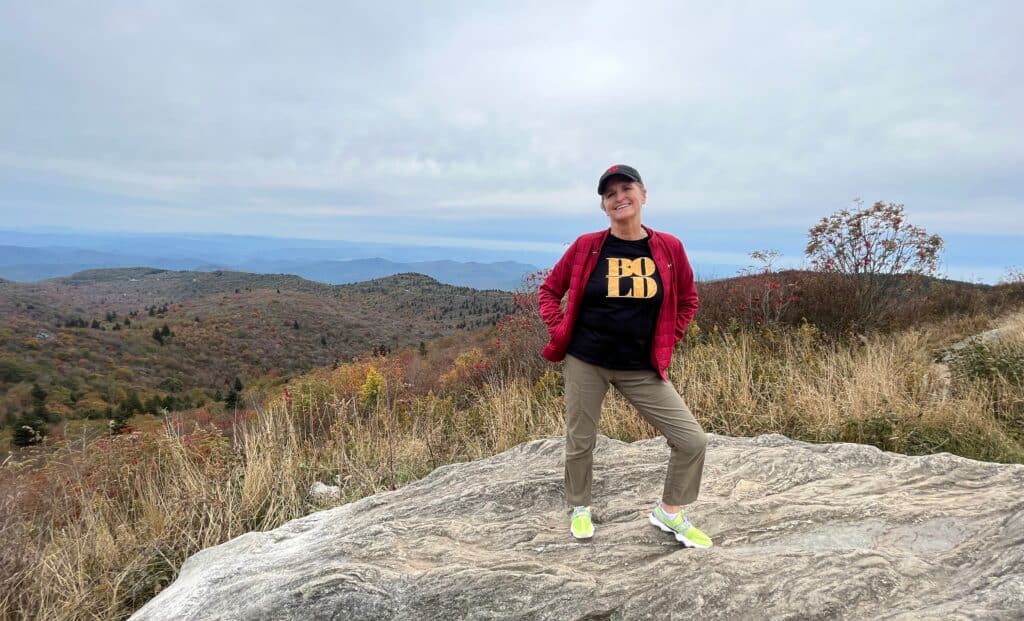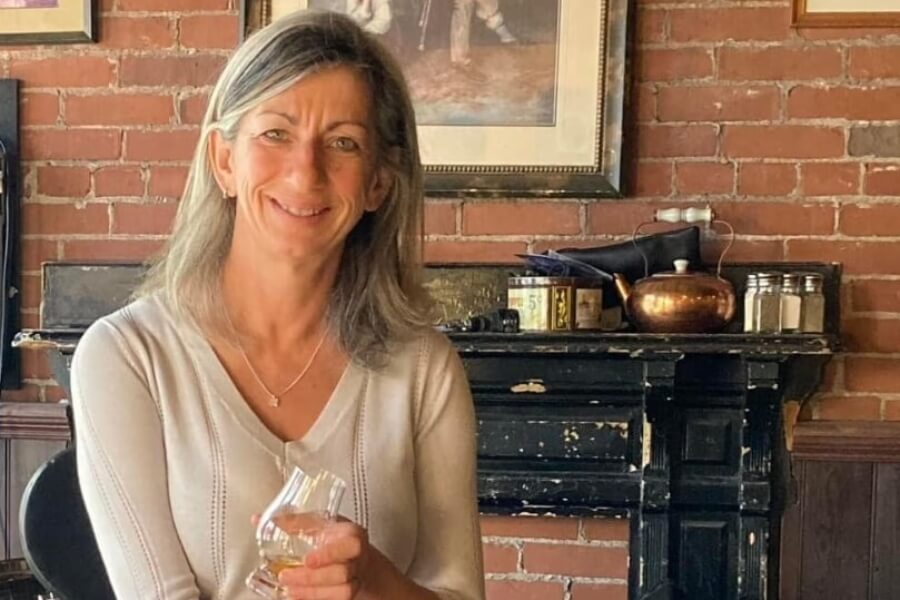I am a 60-year-old debutante—a literary debutante. My book, Asylum: A Memoir of Family Secrets, will be published on September 9, 2021. The book is the culmination of a lifetime’s work. It holds memories that have gone into shaping my unique narrative. I wrestled hard with the narrative about my oddly mismatched Cuban-born mother and elusive, possibly-CIA-agent father (and maybe a half-sister) until it was a book. My book. The book I will soon hold in my hands.
But Asylum is not really my debut. My first literary attempt was a short novel I titled Mr. Swanson’s Seals, which was eight-year-old me’s brazen rip-off of a book I loved called Mr. Popper’s Penguins. I penned what I was sure was a masterpiece in the blue exam books my father brought home from his adjunct teaching job.
Work through the emotional storms to be seen and heard in the classroom, in the workplace, and on the page.
I wrote on the dining room table close to my mother as she typed graduate school term papers in her native Spanish for a master’s degree in Spanish literature. She carefully fed onionskin paper into her baby blue Smith Corona’s roller and each typebar singed the paper with a letter. It was like a match striking a rough strip of sandpaper. Friction creates fire. I learned that early on with my volatile mother.
When I typed “The End” on my opus, I was so confident that I wrote to a publisher I found in the Yellow Pages, announcing that I would send the manuscript for Mr. Swanson’s Seals to them. I assured the editors I had lovely handwriting. An editor sweetly wrote back and said that his company only published legal books, but he encouraged me to keep at it.
Read More: Publishing a Debut Novel Later in Life: Here’s How One Woman Did It
Confidence Found and Lost
A word about young girls’ confidence—it’s sturdy until it becomes as fragile as glass. We’re afraid to raise our hands in class. When we whisper the correct answer, it is almost never heard above the male din. It took my mother many years to find the courage to go back to school for post-graduate education. When she did, there was valor and strength in numbers. She was among the many women in the mid-1960s who hung up their aprons and reclaimed their lives.
I watched my mother study, lips moving as she read while stirring hapless stews she nearly burned. I watched her panic over deadlines. I watched her cry that she wasn’t good enough, had no right to earn her degree. Witnessing so much self-doubt can make a little girl feel like an imposter. But it can also show that little girl success is hard-won. There’s a message here: work through the emotional storms to be seen and heard in the classroom, in the workplace, and on the page.
I know why girls keep diaries. We need a place to set down our thoughts, hear our voices. My millennial daughter calls it a safe space. I call it survival. I wanted, I needed to make art, although that’s not what I would have called it at the time.
Dear Diary: Why am I so hard on myself? Why do I feel like an imposter?
The Imposter Lurks!
I went on to earn an MFA in creative writing, where my thesis was a collection of thinly veiled stories about my family. One prominent story was about my father, and when I reread it after many years, I cried because of how necessary it had been to write those stories.
I wrote: “Of his time in Guatemala, my father says this and this only: ‘What a paradise and what beautiful people.’ His friend Tony told us about the United Fruit Company. My father hated that that came back to haunt. A CIA front, it wasn’t the kind of place a born-again Democrat should have worked.”
My book comes out in the fall, but it’s hard to feel successful.
Years before I started Asylum, I tried to write a novel about my father. I was still self-conscious that I wasn’t inventive enough. I didn’t yet realize that speculating about my parents’ secrets in a memoir was beautiful and holy. My years of writing had been in service to freeing myself to accept that the past lingers.
When I had children, I took intentional baby steps in solidarity with them and gently wrote about us. By the time my kids were ten and seven, I was writing a parenting column in a local newspaper. I worked hard to give depth and universality to the anecdotal. Those were the days of driving the kid itinerary of loop after loop during school days—days when ideas loudly ricocheted in my head. I clamored to write them down. This was the run-up to how a writer debuts decades later at 60.
My book comes out in the fall but it’s still hard for me to feel successful. The imposter lurks! I will only say that people write to me, stop me in the grocery store (my picture also accompanies my newest column), to tell me that I’m speaking to them. That I write vulnerable. I write true.
The Importance of an Apostrophe
I have laid my story bare over many pages that will unbelievably be bound into a book. Having this book published feels like the terror of free-floating in a vast outer space without a tether. It’s devastatingly awesome.
Having this book published feels like the terror of free-floating in a vast outer space without a tether.
The book was my obsession for over a decade. To finish it, I contacted my father’s former associates, my parents’ relatives and friends; accessed records through the Freedom of Information Act, and traveled to Cuba to search for the truth among rumors of a dowry pay-off and multiple wedding ceremonies for the 40-year-old groom and the 24-year-old bride.
It is now my accomplishment. I banged it out as hard as my mother typed on the dining room table. Along the way, I learned how crucial it is to understand that the power of a life cannot always be conveyed chronologically. It’s important to be patient and craft meaning sentence by sentence. But I can’t take all the credit. It was a group effort. During the writing, I often called on my dead and my wounded to sit with me. You are getting your due too, I told them.
A Writer’s Debut at 60. There’s a headline. I focus on the apostrophe—the possessive that reflects my possession, my control over my story, my life. I worked hard for that smidge of punctuation—the smidge that changed my life. I cobbled my book together until the stitches didn’t show. Until that urgent apostrophe was wholly mine.
And now please draw close—I need to tell you my story.
Read More: My Book Club, My Self: How Novels and a Group of Readers Got Me Through Hard Times
***
Judy Bolton-Fasman’s memoir, Asylum: A Memoir of Family Secrets, will be published in September of 2021. Her essays and reviews have appeared in the New York Times, the Boston Globe, Cognoscenti, and many literary venues.





















0 Comments